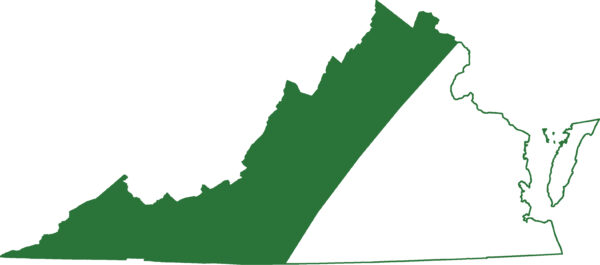Fact File
Scientific Name: Gyrinophilus porphyriticus danielsi
Classification: Amphibian
Size: Up to 9 inches
Identifying Characteristics
Spring Salamanders are large, stout-bodied salamanders. They are pink to orange with small black dots on the back. There is a white and a black line running from each eye to the snout.
Distribution:
Three subspecies of Spring Salamander occur in Virginia; the Blue Ridge Spring Salamander (G. p. danielsi), Kentucky Spring Salamander (G. p. duryi), and Northern Spring Salamander (G. p. porphyriticus). All of which occur in the western half of Virginia with the Northern Spring Salamander being the most widespread. They inhabit springs, small streams, and seeps.

Did You Know?
Spring Salamanders can produce noxious skin secretions to repel predators.
Role in the Web of Life
Although adults are found under cover in the water by day and emerge to hunt at night along stream banks, the larvae are more active during the day. They prey upon invertebrates and even smaller salamanders, including members of their own species. Breeding occurs in the fall and throughout winter. Females can produce as many as 100 eggs, which they attach to the underside of rocks in streams, usually in underground crevices. Larvae hatch in the late summer and may take 3–4 years to metamorphose, often reaching 6 inches in length.
Conservation
Species appears to be secure in Virginia.
Last updated: January 22, 2024
The Virginia Department of Wildlife Resources Species Profile Database serves as a repository of information for Virginia’s fish and wildlife species. The database is managed and curated by the Wildlife Information and Environmental Services (WIES) program. Species profile data, distribution information, and photography is generated by the Virginia Department of Wildlife Resources, State and Federal agencies, Collection Permittees, and other trusted partners. This product is not suitable for legal, engineering, or surveying use. The Virginia Department of Wildlife Resources does not accept responsibility for any missing data, inaccuracies, or other errors which may exist. In accordance with the terms of service for this product, you agree to this disclaimer.

